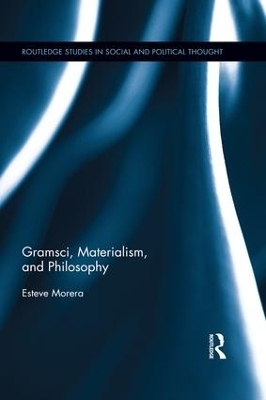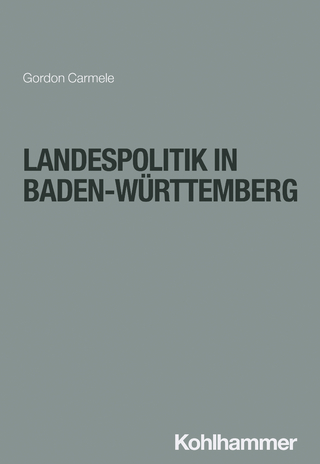
Gramsci, Materialism, and Philosophy
Seiten
2016
Routledge (Verlag)
978-1-138-69638-9 (ISBN)
Routledge (Verlag)
978-1-138-69638-9 (ISBN)
Western critical theory, Marxism included, has largely been based on a view of historical materialism that Gramsci, among others, developed in his prison notebooks. For many, Gramsci’s philosophical reflections in prison offered a new foundation for the philosophy of the future. His reflections on the philosophy of praxis and absolute historicism find echoes in much of what today is considered to be a materialist philosophy. That form of materialism was unable to provide a sound foundation for a progressive social project, the possibility of a meaningful and creative ethical life, and the forms of activity or praxis that would be conducive to creating good society.
In this book, Esteve Morera connects Marxist philosophy to the broader philosophical discussion of materialism in metaphysics, the philosophy science, philosophy of mind, and naturalised ethics. Each chapter deals with a particular aspect related to materialism and its consequences, the sorts of things that, if materialism is true, need to be confronted. Morera critiques, and rejects Gramsci’s conception of matter and materialism and concludes that that philosophical materialism is compatible with freedom, and as a consequence, offers a good foundation for ethical life.
Gramsci, Materialism, and Philosophy is an original contribution to the philosophically vital debates around the meaning, limitations, implications, and possibilities of philosophical materialism as it is a contribution to the critical literature on Gramsci.
In this book, Esteve Morera connects Marxist philosophy to the broader philosophical discussion of materialism in metaphysics, the philosophy science, philosophy of mind, and naturalised ethics. Each chapter deals with a particular aspect related to materialism and its consequences, the sorts of things that, if materialism is true, need to be confronted. Morera critiques, and rejects Gramsci’s conception of matter and materialism and concludes that that philosophical materialism is compatible with freedom, and as a consequence, offers a good foundation for ethical life.
Gramsci, Materialism, and Philosophy is an original contribution to the philosophically vital debates around the meaning, limitations, implications, and possibilities of philosophical materialism as it is a contribution to the critical literature on Gramsci.
Esteve Morera is Associate Professor in the Departments of Philosophy and Political Science at York University. He is the author of Gramsci's Historicism: A Realist Interpretation (1990) and a number of articles on Gramsci and Vico. His research interests include social and political philosophy, philosophy of history, critical theory, and continental philosophy, especially Vico, Kant, Marx, Croce, and Gramsci.
Introduction. 1. Gramsci and Philosophy. 2. Materialism. 3. Gramsci's Conception of "Organic." 4. Human Nature. 5. Materialism and the Possibility of Ethical Life. 6. Concluding Remarks.
| Erscheinungsdatum | 25.05.2016 |
|---|---|
| Reihe/Serie | Routledge Studies in Social and Political Thought |
| Verlagsort | London |
| Sprache | englisch |
| Maße | 156 x 234 mm |
| Gewicht | 226 g |
| Themenwelt | Geisteswissenschaften ► Geschichte |
| Geisteswissenschaften ► Philosophie | |
| Sozialwissenschaften ► Politik / Verwaltung ► Politische Systeme | |
| Sozialwissenschaften ► Politik / Verwaltung ► Politische Theorie | |
| ISBN-10 | 1-138-69638-2 / 1138696382 |
| ISBN-13 | 978-1-138-69638-9 / 9781138696389 |
| Zustand | Neuware |
| Haben Sie eine Frage zum Produkt? |
Mehr entdecken
aus dem Bereich
aus dem Bereich


